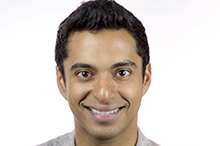

Breaking News: The world is now mobile…and it the mobile revolution is here to stay, but if “going mobile” is a thing of the past, one must wonder, what is next? What is the next wave in technology evaluation?
Observing recent movements in the technology market give us a clue to answer that question. Whether its Google buying smart thermostat maker Nest for 3 billion dollars or Apple recently launching the Apple Watch, one thing is clear: connectivity is leaping beyond the “smart phone” and infusing itself into our daily lives. Everything we touch could be connected. In addition to convenience, this new world of universal connectivity is producing something else in mass quantity: data. And, with data comes the need for its meaningful interpretation through algorithms, or data science. The use of data science in this newfound world of connectivity is delivering what used to be considered the realm of science fiction, like autonomous drones, self-driving cars and 3-D printers. To put it simply, it looks like the next leap in technology will take place at the intersection between data and how users experience technology. That is, the next revolution will change how we engage and interact with data in our daily lives through the medium of technology.
Every industry (from retail to defense) stands to gain from this evolution. However, I believe that healthcare is uniquely positioned to reap some of its most significant benefits. In fact, I truly believe that, over the next 50 years, healthcare will be fundamentally reshaped as a more personalized and precise care delivery model. And, this reshaping of healthcare will be driven by the gains in data science.
My own journey at this intersection began with a youthful zeal for technology. But, it kicked into high gear with my involvement with the Quantified-Self movement - a niche community based the premise of “self-knowledge through data”. While we are all self-proclaimed data geeks, we were driven by the intrinsic belief that the solutions to our most dire and critical healthcare needs would be unlocked by the power of data lurking beneath the surface. Through my involvement with this group, I quickly realized that data science would be the face of precision medicine and it would be the wave of the future. But I was left wondering: how could I put hope into action? And how could I spread the word from a group of geeks interested in this future to everyone that had a stake in their healthcare?
The answer to that question has been revealed through my journey in the world of entrepreneurship. I have built Babyscripts, a company whose sole focus of improving pregnancies using data. We created a product that enabled obstetricians to remotely monitor pregnancies through simple tools like connected weight scales and blood pressure cuffs. We showed that using such a tool could not only enhance the care that providers deliver, but also improve access while lowering costs. More importantly, we are showing that we are now beginning to tap into the power of data to improve outcomes. What is even more exciting is that we are not the only ones tapping into that power. Welldoc, a company in Baltimore, is also fundamentally changing diabetes management with data. Another company, Adhere tech is changing the way medication adherence is being handled with connectivity, while AliveCor is doing the executing similar changes in ECG monitoring. It is truly amazing to see how innovators across the nation are moving the needle towards precision medicine by using data and integrating it into our daily lives.
So what makes our company and the products of these innovators unique and effective? As I see it, there are two salient elements. First, we are designing the experience of technology, and its management of our health, to be more intuitive, more ambient and ultimately more seamlessly integrated into the human experience – a term that we at Babyscripts have dubbed “Human Experience,” or “HumEx,” for short. Second, we are uncovering patterns in the data and, through those patterns, dynamically reacting to medical issues in real time. We call this Data Science as a Service, or DSaaS, for short – a term that we have borrowed from our good friend Anand Iyer at Welldoc. But, most importantly, we do not treat HumEx and DSaaS as discreet, independent elements that might lead to a successful product; to the contrary, DSaaS and HumEx form an integrated, coordinated and unified whole. As data is gathered (or better, generated) from the human experience, interpretation of data seamlessly and automatically informs the human experience. This infinite back and forth between data and human activity ultimately forms the basis for the intelligent and genuine improvement of the human experience – in our case, the medical experience. Thus, the union of HumEx and DSaaS together constitute the future of healthcare: Precision Medicine, which is, treating each patient as unique and holistic to truly solve their problems.
Anish Sebastian is the founder of Babyscripts.


